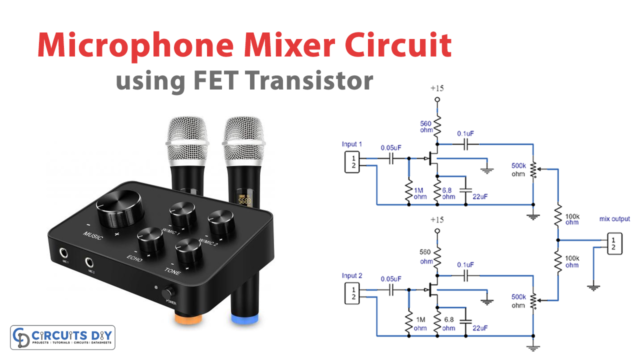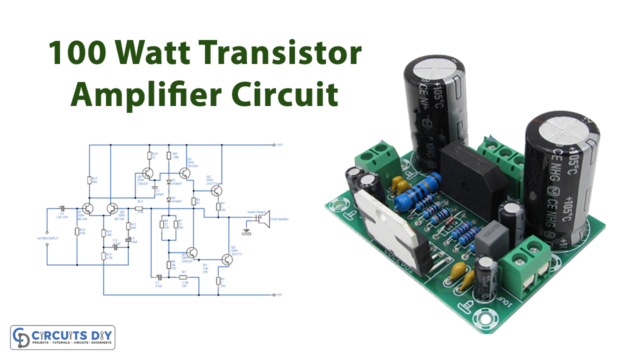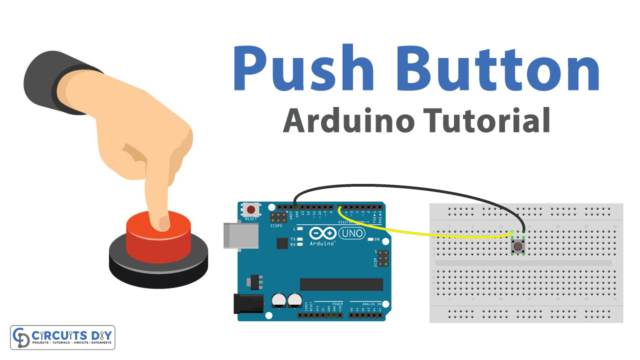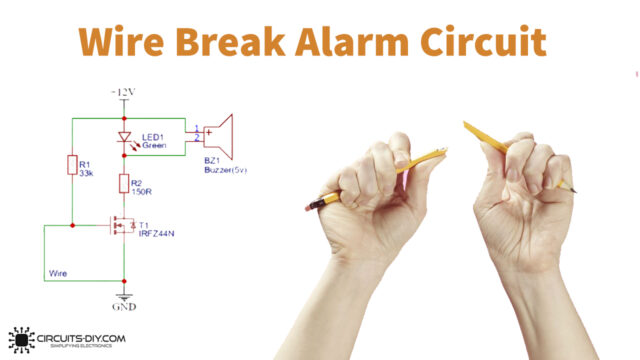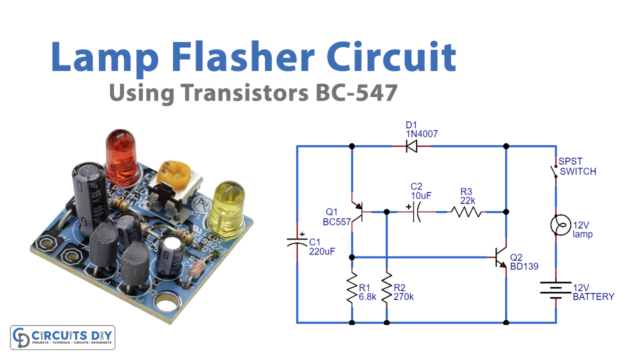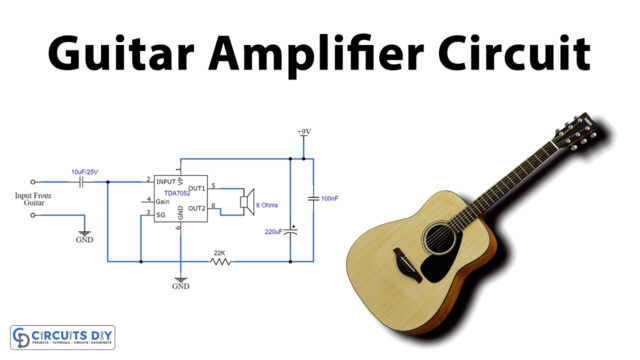The amplifier is an electronic circuit or device used for amplification and primarily used in the reproduction of sound and mainly in our electronics industry. There are many amplifiers available using transistors, op-amp, transformer-based, etc.
Sometimes we use the pre-amplifier circuit to amplify the weak signals for detection So in this tutorial, we will build a Simple Preamplifier Circuit using NPN transistor BC547.
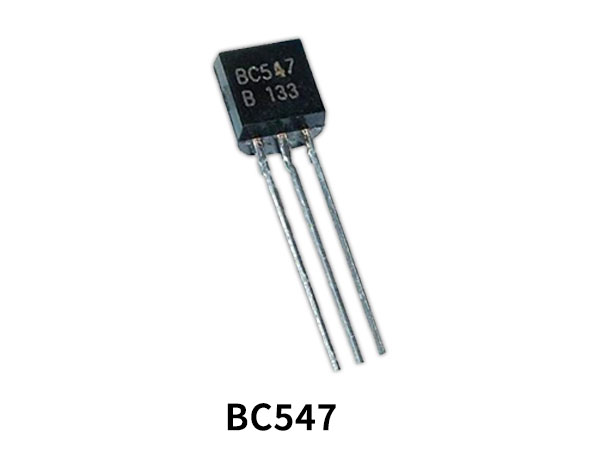
Hardware Components
The following components are required to make Preamplifier Circuit
| S.No | Component | Value | Qty |
|---|---|---|---|
| 1. | Breadboard | – | 1 |
| 2. | Battery | 9v | 1 |
| 3. | Speaker | 8 ohm | 1 |
| 4. | NPN Transistor | BC547 | 1 |
| 5. | Capacitor | 100uF | 1 |
| 6. | Resistor | 2.2k | 1 |
BC547 Pinout
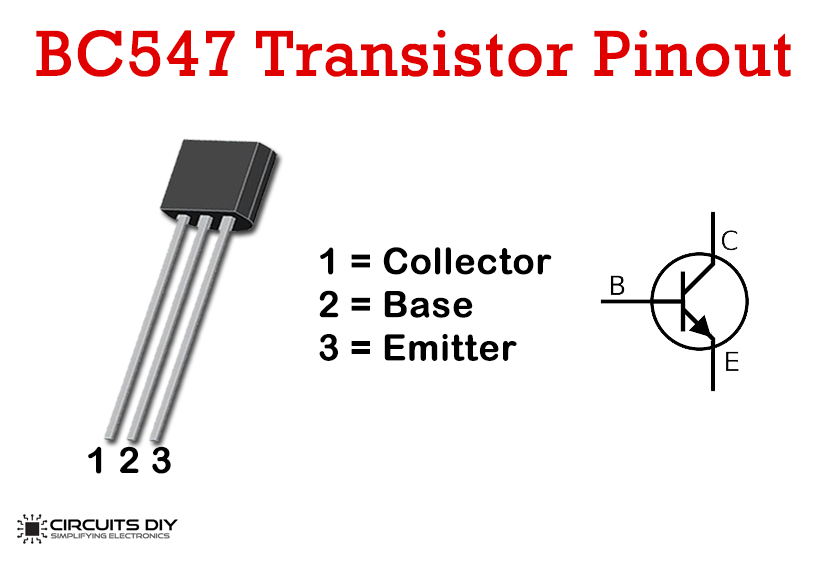
For a detailed description of pinout, dimension features, and specifications download the datasheet of BC547
Preamplifier Circuit
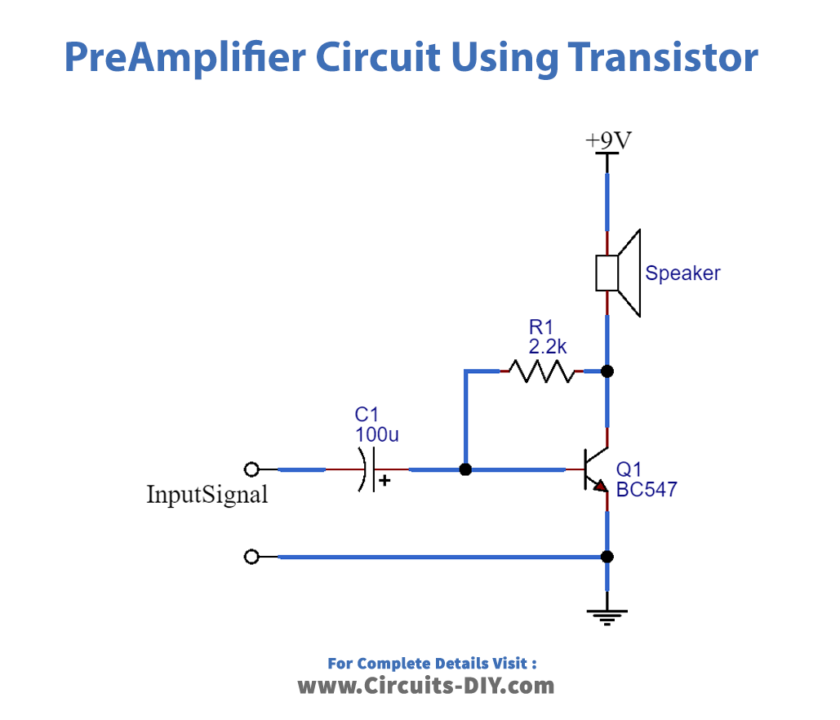
Working Explanation
It is the simplest circuit for the pre-amplifier. Here, the capacitor C1 acts as a coupling capacitor. It uses the coupling capacitor as a filter to block the DC component of the input signal; we also call it a DC-blocking capacitor. It prevents the headphones or speakers from getting damaged by the flow of DC.
You can use transistors either as a switch or an amplifier. So here this BC547 NPN transistor acts as an amplifier.
In the amplification configuration, the transistor allows a larger current to flow when we apply a smaller voltage at its base. So here we are using a voltage at its base through the audio input signal by the AUX jack, and it allows a larger current to pass from the 9v battery source through the speaker. In this way, it converts electrical energy into audio output.


